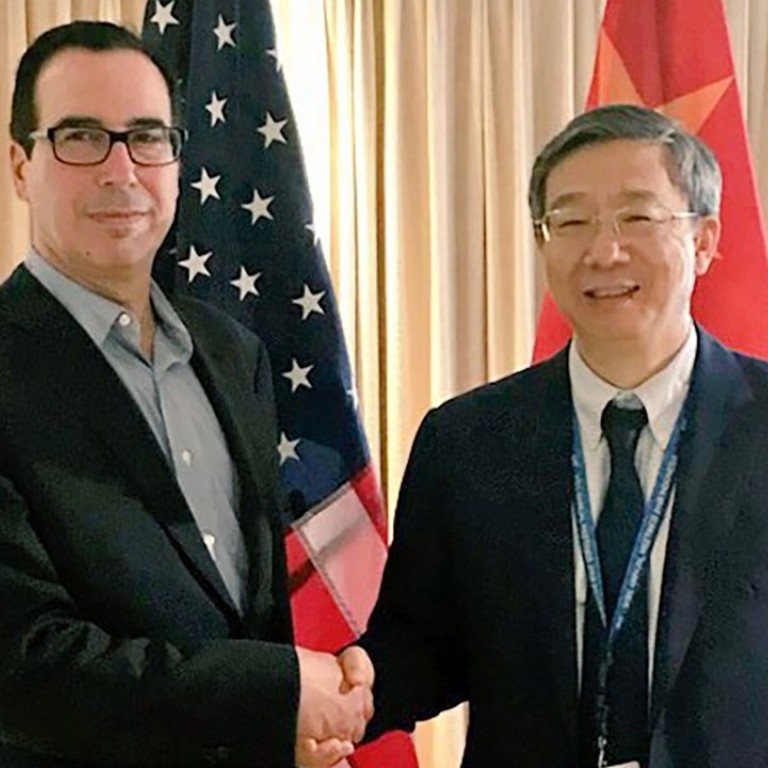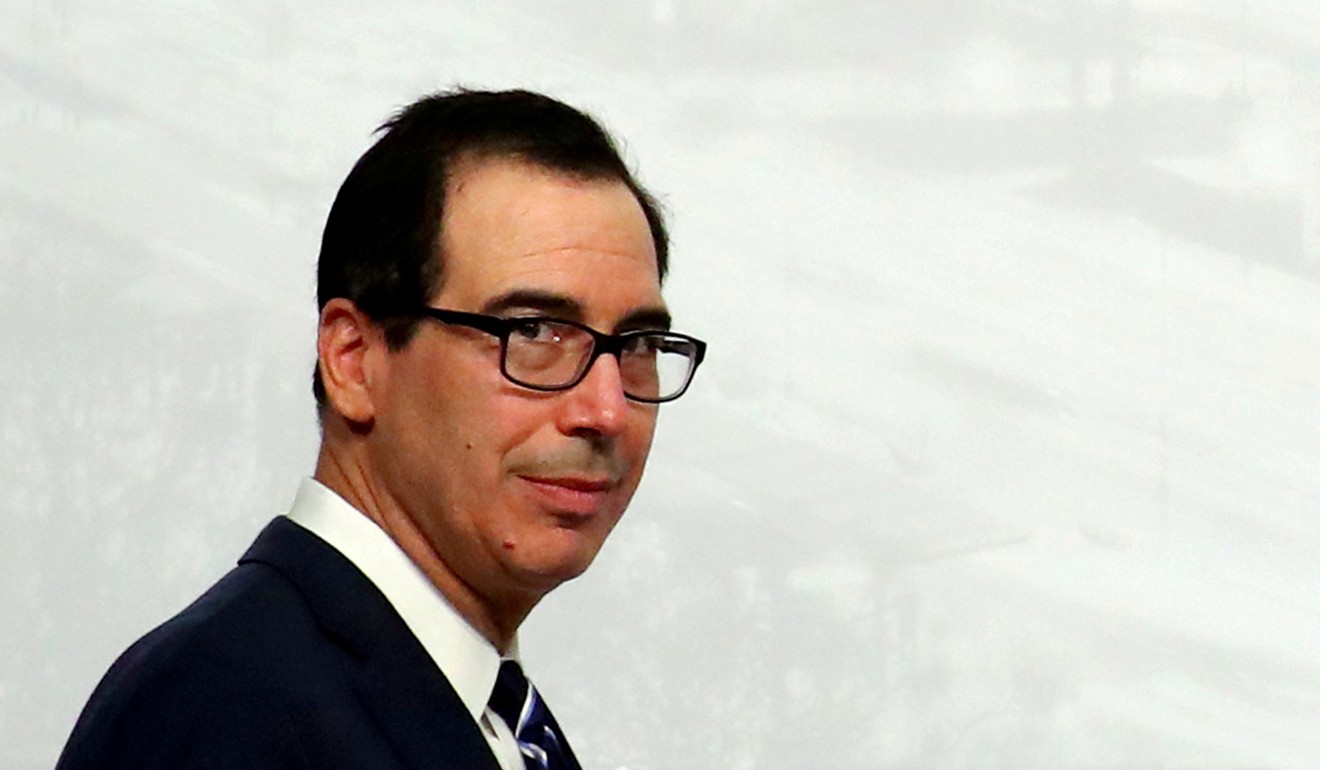
China central bank chief meets Mnuchin amid trade tensions, stock plunge
US Treasury Secretary quoted as saying his department was monitoring currency issues ‘very carefully’, noting the renminbi had fallen ‘significantly’ this year
China’s central bank governor Yi Gang has met with US Treasury Secretary Steven Mnuchin on the sidelines of the World Bank annual conference in Bali, Indonesia and exchanged views over “relevant economic and financial issues”, the People’s Bank of China said in a brief statement on its website on Thursday.
The meeting took place at a time when Washington is raising voices over yuan exchange rates.
Mnuchin was quoted by the Financial Times on Wednesday as saying the Treasury monitored currency issues “very carefully” and noted that the Chinese renminbi had fallen “significantly” during the year, adding he wanted to discuss the currency with Beijing as part of trade talks.
The meeting also happened against the backdrop of a big worldwide market slump. The Dow Jones Industrial Average plunged more than 800 points on Wednesday, marking the worst day drop in eight months, while China’s benchmark Shanghai composite stock index has lost 5.2 per cent on Thursday to the lowest level since January 2016.

Yi declined to comment when South China Morning Post asked him how his meeting with Mnuchin had gone.
Later in the day, Yi had a meeting with Federal Reserve chairman Jerome Powell and discussed monetary policies of the two countries, the central bank said, without elaborating.
Separately, he was quoted by the Chinese magazine Caixin as saying that China has achieved initial success in keeping debt levels from rising further and is able to achieve its growth targets set at the beginning of this year. The government has set a growth target of about 6.5 per cent for 2018 after China’s GDP expanded 6.8 per cent in the first half.
Yi was quoted as saying that China’s monetary policies mainly consider domestic situations.
IMF chief Lagarde dismisses idea Beijing is manipulating the yuan as Washington turns up the heat
A senior US Treasury official told the Post earlier that Washington is concerned about the depreciation of the yuan, officially called the renminbi, as well as recent moves by Beijing to strengthen government control over the exchange rate.
The official said questions about the yuan would be addressed in the Treasury’s next foreign exchange report, which would likely be released during the week of October 15. The official gave no clue as to what the report might conclude about Chinese foreign exchange policies.
The yuan has weakened over 10 per cent against the dollar since its peak in February, a development that in theory could offset additional tariffs on Chinese exports.
Meanwhile, the Chinese central bank’s latest move of pumping additional cash into the economy has raised fresh concerns over whether Beijing is preparing to permit a steady depreciation of the Chinese currency. The yuan traded at about 6.93 against the dollar in both onshore and offshore markets on Thursday.
The attraction for the Trump team is that if the Treasury were to consider China a currency manipulator, then it makes it very easy for the team to add additional tariffs without questions being asked
The meeting between Yi, a key aide to Chinese Vice-Premier Liu He and Beijing’s chief trade war negotiator, and Mnuchin, a relatively dovish voice in US President Donald Trump’s trade team, was their first face-to-face meeting since Yi accompanied Liu to Washington in May.
Louis Kuijs, head of Asia at Oxford Economics, said that there were risks for China to be labelled a currency manipulator even though it technically doesn’t fit the US Treasury’s criteria to be classified as such.
China premier says yuan not a weapon in trade row as economic ‘cold war’ looms
“It seems to be the case that the White House and [US President Donald] Trump team’s is putting quite a bit of pressure on the Treasury... the Trump team, significantly more than predecessors, are looking at this process [of labelling China a currency manipulator],” Kuijs said.
“The attraction for the Trump team is that if the Treasury were to consider China a currency manipulator, then it makes it very easy for the team to add additional tariffs without questions being asked.”
Additional reporting by Xie Yu in Bali


